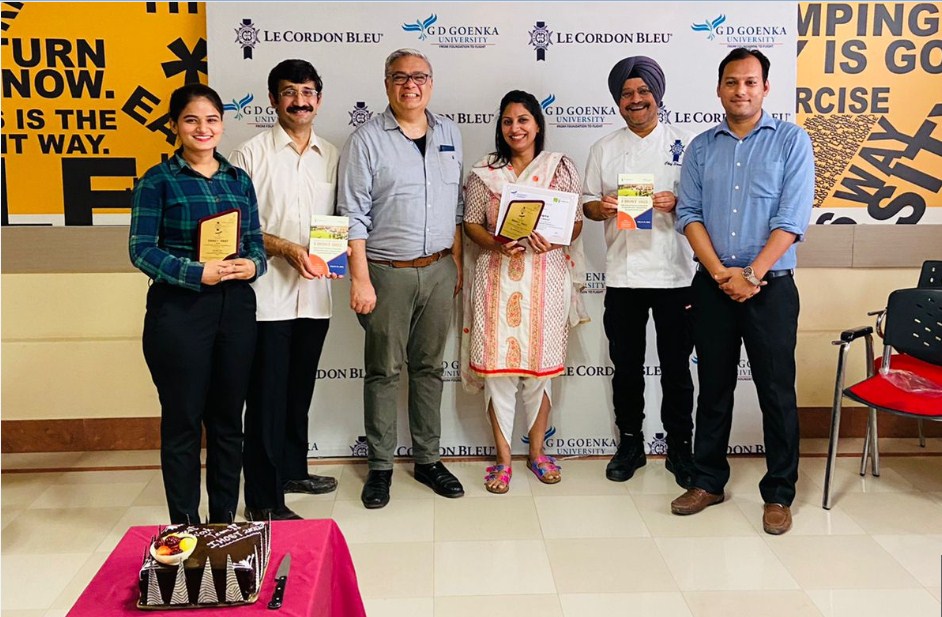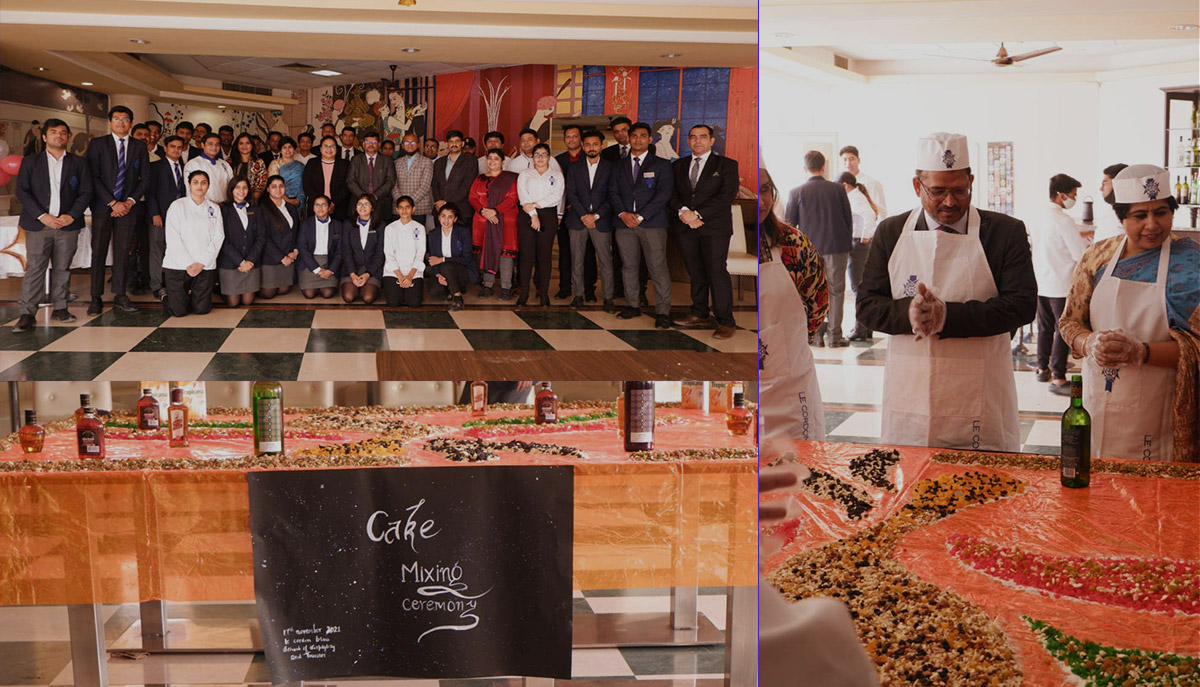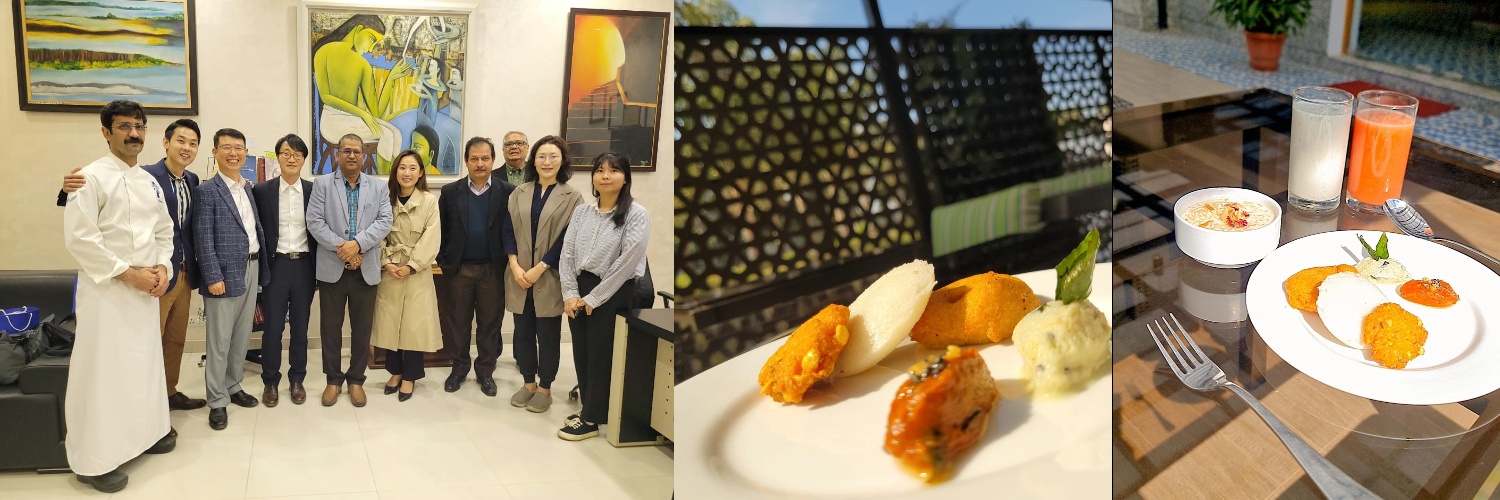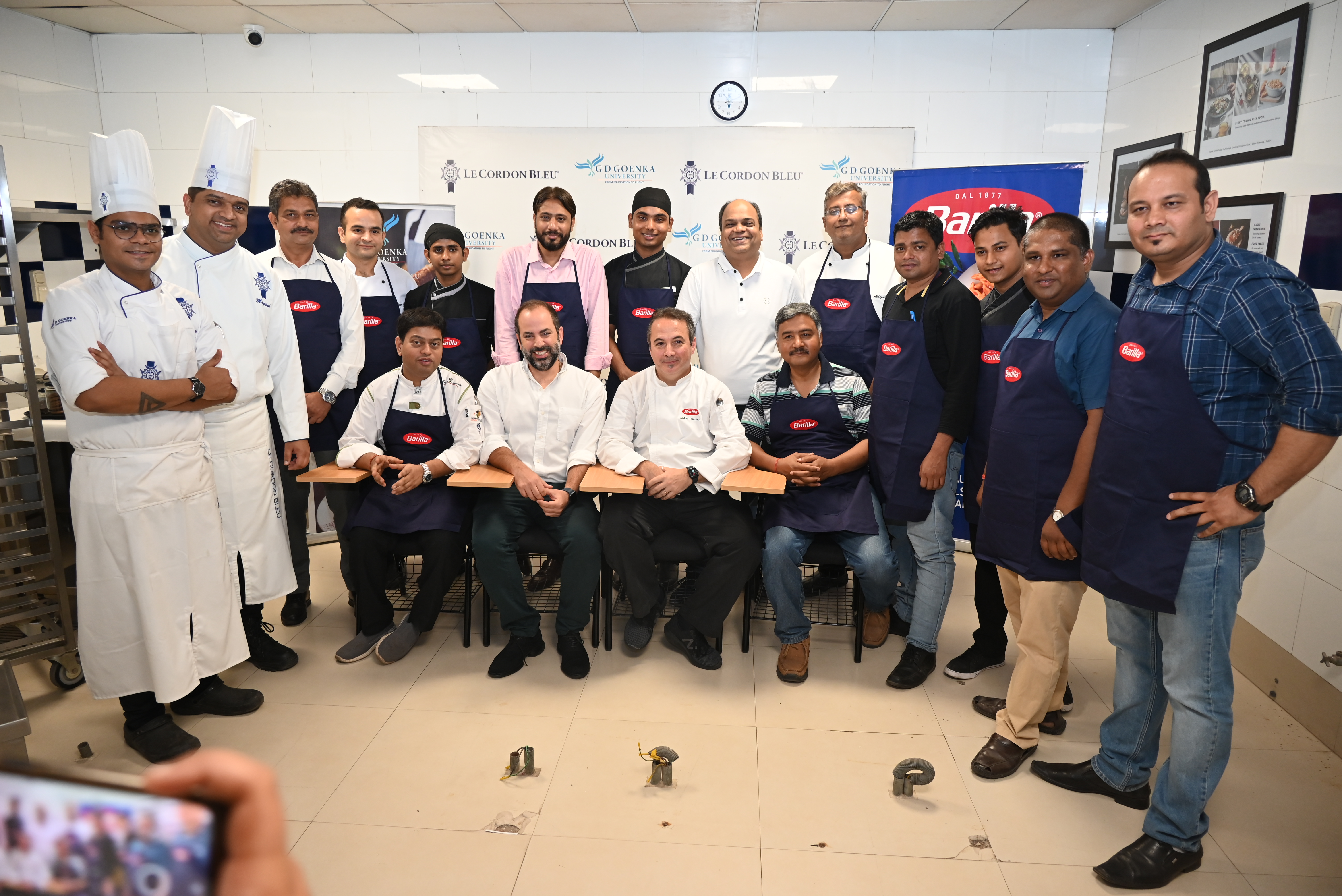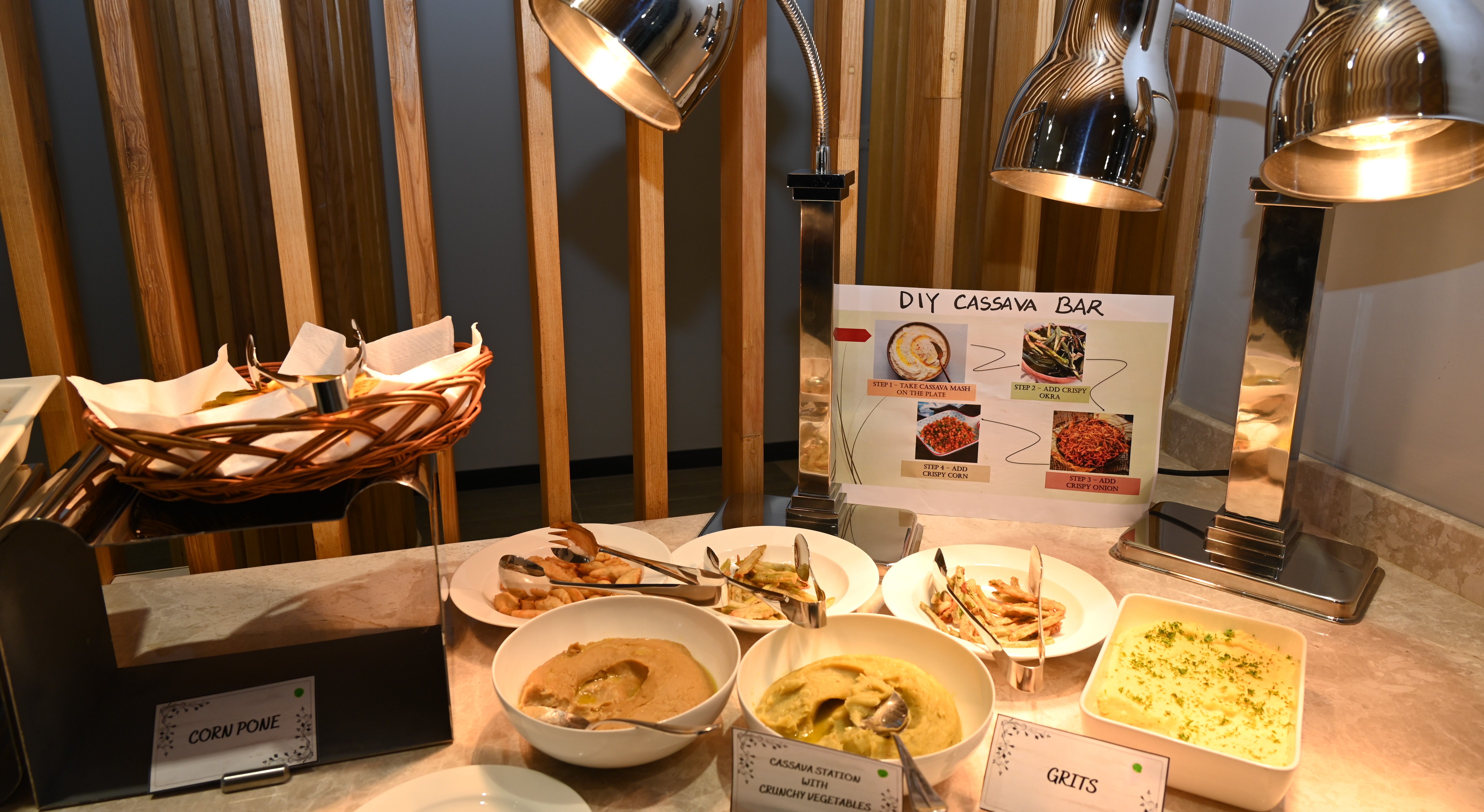
Schedule:
| Date | Time | Events |
|
5th April 2023 |
1410hrs |
Introduction and Research Approaches to Cuisine Around the World |
| 6th April 2023 | 1400hrs | Lecture by Prof Annabel Jackson |
| 10th April 2023 | 1410hrs | Film and Discussion |
| 11th April 2023 | 1500hrs |
Impact of Invasions on Food of Maharajas of Punjab – Prof Dr Chef P S Bali |
| 12th April 2023 | 2000hrs | Lecture by Prof Ken |
| 14th April 2023 | 1030hrs | Buffet set up and display about the menu |
The event has been designed to showcase the cuisines around the world as modified in the lens
of Slavery, Trade, Invasion and Colonisation. Le Cordon Bleu School of Hospitality and
Tourism students have researched on the theme under the guidance of Chef Mayank and the
team. The schedule of the programme has given the glimpse of the events to reach to the final
date for showcasing the innovative skills to the industry.
Beginning of the week, the students watched, the movie “High on the Hog”. This Netflix food
documentary series explores the culinary roots of African American cuisine. One of the key
takeaways from the movie is that many of the ingredients and cooking techniques used in African
American cuisine have their roots in West Africa. They also watched the movie “12 Years a
Slave”; which demonstrated a profound impact on American culture and society. This movie
helped us to shed light on the brutal realities of slavery and its legacy. The movie also touches
on the impact of food on the psychological and emotional well-being of enslaved people.
For India, the Portugal trade resulted in the introduction of novel culinary items to the region such
as potatoes, chillies, tomatoes, pineapples, bread, vinegar, and different kinds of meat. Before
the invasion of the Portuguese, the Goan diet used to include flatbreads such as rotis, the
Portuguese brought with them distinctive bread known as Pao. Since then, bread has become a
very important part of Goan diet. Also, tamarind and kokum are widely used in Goan dishes to
enhance their flavour. In the online session with Prof. Annabel Jackson, also suggested the
book ‘Goa and Portugal their cultural links.
The colonization of India by the British had a profound impact on the food culture of both
countries. The exchange of food and flavours between the two nations has resulted in the
creation of many beloved dishes that are still enjoyed today. The culinary exchange happened
when the British women started interacting with the khansamas and a staple food of the colonial
diet the kedgeree a corruption of the Hindi word khichadi which is a dish made of rice and lentils
originally a vegetarian dish but they made the changes according to their pallet and added boiled
eggs and smoked fish to it.
An interactive session with Dr. Chef P.S. Bali was about the lost dishes of Patiala on 12th
April’23. The students got to know the unique ingredients and recipes which are not very known.
Also, how the cooks of the Mughals invented innovative recipes to be appreciated and take
rewards from nizams. Foreign invasions in India from the Aryan Invasion to the British Invasion
brought the ominous imprints that are left behind.
The research has shared enough information to the students and they have crafted the menu in
the guidance of the faculty Chefs of Le Cordon Bleu School of Hospitality and Tourism. The
students have showcased the well-crafted menu with professionalism to the industry guests
invited from The Oberoi Gurgaon on the final day of the event.
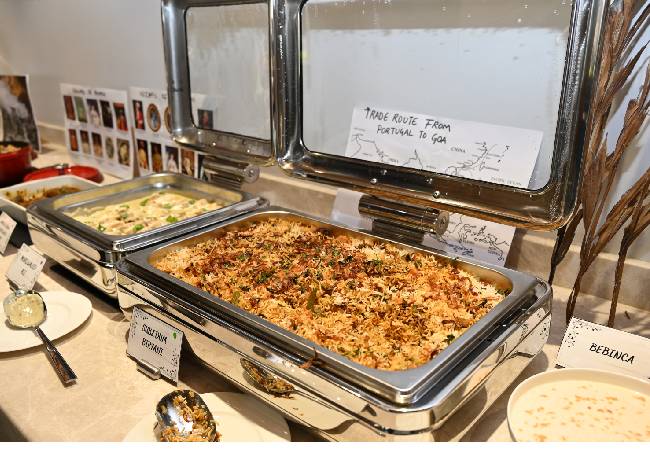

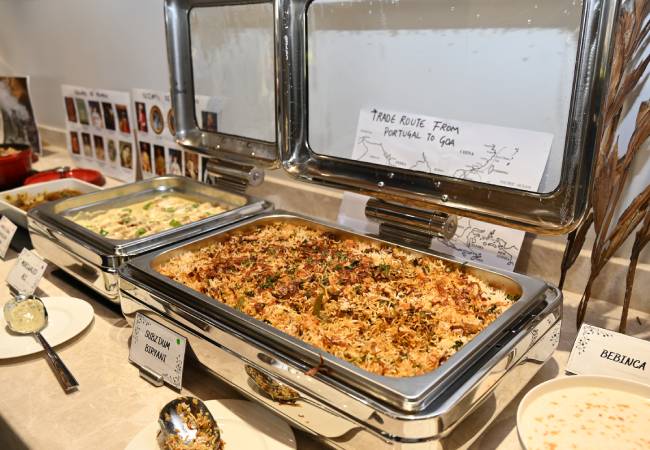
Our Blogs Similar Blogs
Connect with UsTalk to our Admissions Counsellor
+91 9910000062



